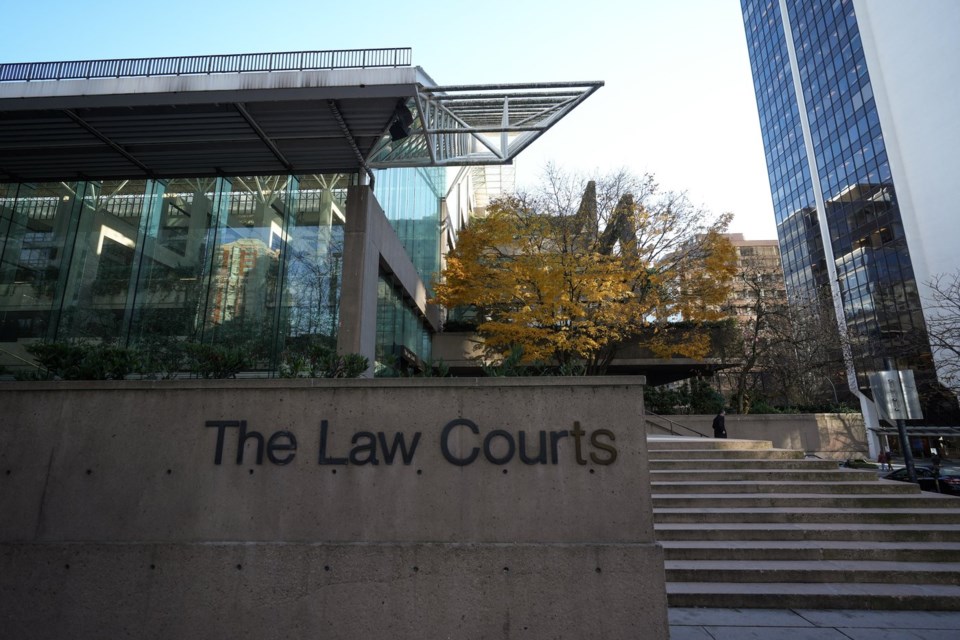VANCOUVER — The B.C. Court of Appeal has granted a man convicted of sexually assaulting his wife a new trial because messages between the pair about a consensual "rape role-play" scenario were wrongfully excluded as evidence.
The ruling released on Friday says the complainant and accused, who can't be identified under a publication ban, were married but separated at the time of the alleged sexual assault in November 2019.
The ruling says the husband claimed during the trial that his wife "agreed to participate in" and "instigated" a so-called "rape role-play" scenario, after they exchanged sexually explicit Facebook messages the night before the alleged assault.
The ruling says the woman sent her husband a video message including the sentence "'Reblog if you’re into Rape Play" followed by an exchange that included the wife describing her fantasies.
The trial judge found the messages weren't relevant because they didn't contain a "script for the role-play."
"A fantasy expressed is different from consent. Consent requires clear parameters and cannot be vague and broad. A fantasy can be entirely in the mind of the holder. Communicated consent cannot," the lower court ruled.
But the three-judge appeal panel disagreed, finding that the messages about "a stranger rape and feigned sleep" were relevant to whether the act was consensual, or whether the accused had an "honest but mistaken belief" there was consent.
The trial judge was wrong to view the messages "in isolation," the Appeal Court found, because they "were prior communications that related to the complainant’s interest in engaging in the very specific type of role-play."
The panel found the trial judge failed to consider the relevance of the messages in connection with a conversation on the day of the alleged assault, in which the husband said his wife described when they "would start role-playing."
The ruling says that left the accused to testify as if the conversation "occurred out of the blue, rather than as a followup to a discussion that the complainant initiated and participated in."
The woman denied having the conversation in question, testifying that “there was no talk of any sexual activity that day.”
Defence lawyer Elliot Holzman, who represents the accused, said the case involves a somewhat "rare" set of facts where "the traditional notions of consent and honest but mistaken belief in consent have to be adapted to the facts of a rape role-play where one party is pretending to be sleeping or otherwise unconscious."
"While the facts may seem somewhat salacious, I don't think that the application of the law is at all controversial," he said.
Holzman said the messages at issue for the trial judge were very "specific" about the conduct the couple had discussed, rather than generic or "vague" messages of a sexual nature.
He said courts have had to grapple with so-called "rape role-play" and the different "markers of consent," which in this case were the excluded text messages discussing the act, in combination with a conversation the day of the alleged sexual assault.
"Sexual assault law is complicated," he said. "It's very important that we get it right and sometimes that does mean that a sexual assault conviction from trial has to be overturned."
He said a hearing is scheduled later this week in Kamloops provincial court.
This report by The Canadian Press was first published Feb. 3, 2025.
Darryl Greer, The Canadian Press

